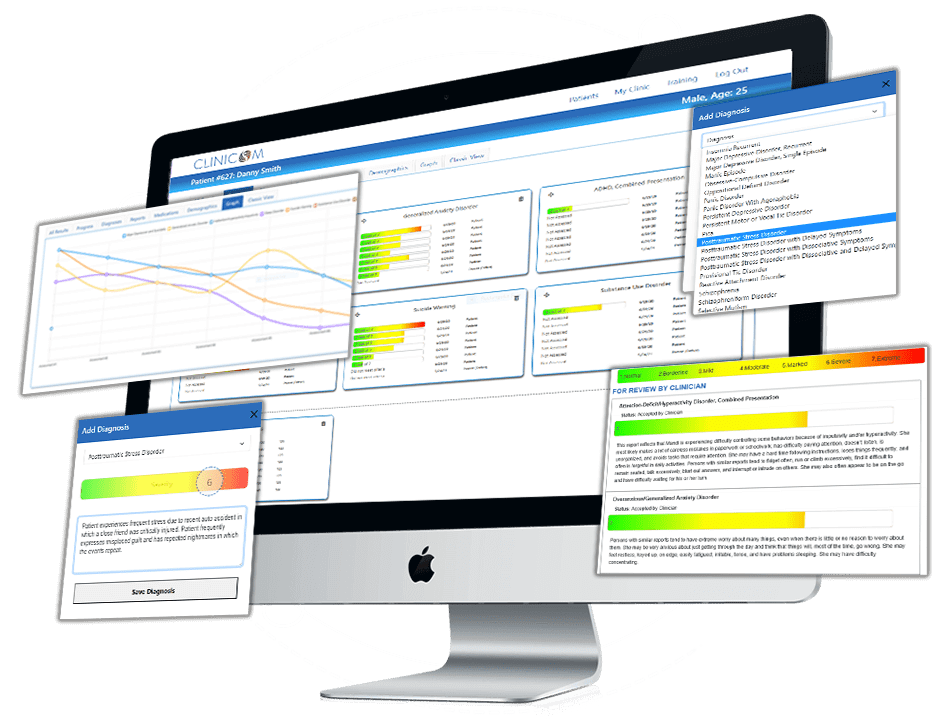TARGET POPULATION
NUMBER OF ITEMS
TIME TO COMPLETE
minutes
FORMAT
The mental health assessment on this page may or may not be part of Clinicom. However, Clinicom’s adaptive assessment covers 81 DSM conditions. Clinicians, explore our free trial to experience the benefits.
Clinicians, learn how you can get a Free Trial to Clinicom and start assessing your patients with assessments that adapt to your patients needs unlike any other assessment in history.

Important Note for Patients:
Clinicom is the most comprehensive assessment for Mental Health. One single online assessment detects up to 80+ mental health conditions.